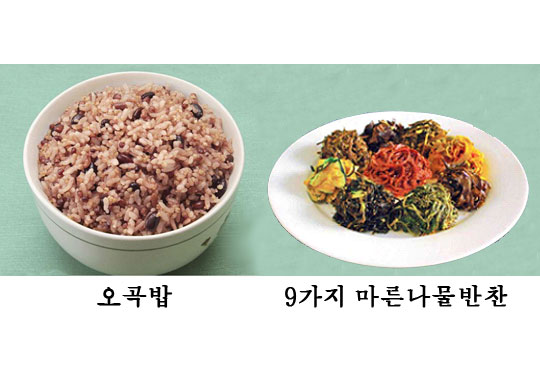Jongwoldaeborum and the folk dishes
From long ago, Korean people have enjoyed jongwoldaeborum (the 15th of lunar January) as a folk holiday and what is the conspicuous food for this day were yakbab (sweet rice dish), okokbab (boiled rice admixed with four other staple cereals), noodles, pokssam (laver-wrapped rice) and 9 sorts of dried greens.
Mokunjip, a historic record compiled during the Koryo Dynasty, recorded the detailed recipe of yakbab (sweet rice dish), which demonstrates its wide use in dietary life of the Korean people before the period of Koryo.
Yakbab is prepared with boiled glutinous rice mixed with honey and sesame oil, seasoned with soy sauce and steamed with peeled chestnut and jujube. It looks very tempting for its special taste, flavor and deep brown color.
Okokbab which is good for health by its five grains is taken to try all grains on the occasion of the holiday and reflects the simple desire for a rich harvest in the New Year as well. Literally, pokssam (laver-wrapped rice) means wrapping happiness. It is prepared by wrapping rice with vegetables or laver.
One of the customs of jongwoldaeborum is to enjoy noodle for lunch on the 14th of the lunar January, hoping their life to be as long as the noodle strips.
And the custom to have 9 sorts of dried greens on jongwoldaeborum was derived from the meticulous housekeeping of the people that gather and dry vegetables at their seasons and use them effectively in winter.
The folk food on jongwoldaeborum with a long history and tradition is still widely used to add national fragrance to the dietary life of Korean people.
